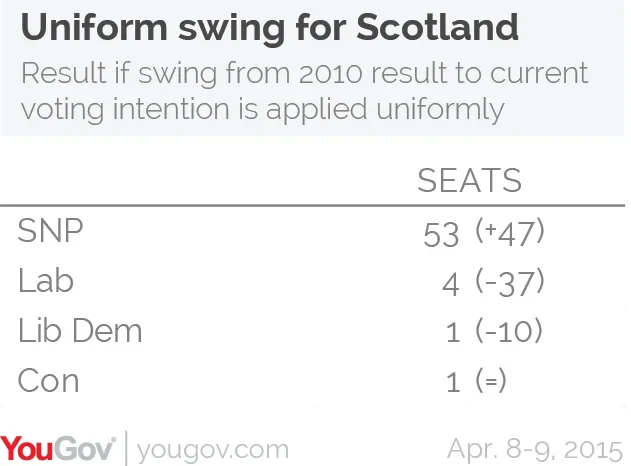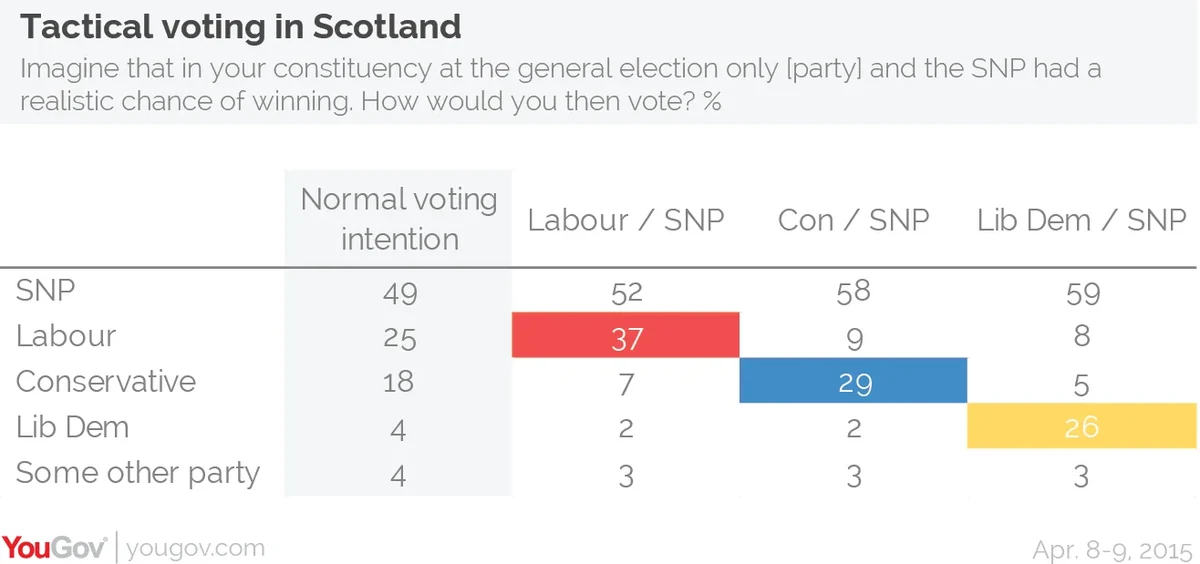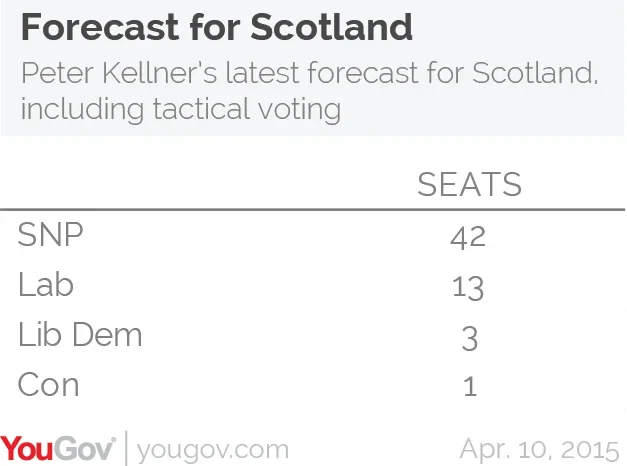YouGov’s latest poll in Scotland suggests that some Labour MPs, and possibly two Liberal Democrats, might be saved by tactical voting
Our overall voting figures, published in today’s Times, indicate a near wipe out. These are based on the conventional way of projecting votes into seats, which is to assume an identical swing to the SNP in every constituency. However, in the same survey, YouGov asked a series of questions for Channel 4 News about tactical voting; and this makes a significant difference.
Here are the figures. First, our overall voting intention figures show the SNP at their highest level yet, 49% (up 29 points since 2010), Labour on 25% (down 17), the Conservatives 18% (up 1) and the Lib Dems 4% (down 15).
Applying those changes, up and down, to each seat, the result would be

We then asked people how they would vote in three separate tactical situations: if they thought the only parties who could win locally were a) Labour or SNP; b) Conservative or SNP, c) Lib Dem or SNP. This is what we found:

As those figures show, many voters are willing to vote tactically. Almost half of all Conservative and Lib Dem supporters say they would switch to Labour to keep out the SNP, while one in three Labour and Lib Dem supporters would back the Conservatives locally. Likewise with Lib Dem / SNP contests: one in three Labour and Conservative supporters would switch their vote to keep out the SNP locally.
The SNP also gains votes – for example 30% of Labour supporters would vote SNP to keep out the Tories. But in each case, the potential SNP gains from tactical voting are more modest than the gains that could accrue to their main opponent.
Now these are of course hypothetical figures. We can’t be sure how many voters will appreciate the local tactical situation. However, I would expect it to save up to nine Labour MPs (such as Douglas Alexander in Paisley and Renfrewshire South) and two Liberal Democrats (including Charles Kennedy in Ross Skye and Lochaber).
My own very tentative projection, including tactical voting, is that the outcome would be:

With four weeks to go, things may change. The SNP may be benefitting from a post-debates spike in support, which might subside. Some Labour and Lib Dem MPs with a strong personal following may be able to stop some of their past supporters from switching to the SNP. On the other hand, tactical voting might not be as prevalent in practice as our question indicates.
However, given the significance of Scotland in this election – both constitutionally and in terms of its impact on whether Labour or the Conservatives end up as the largest party at Westminster – it is clear that tactical voting in Scotland may have a real effect on Britain’s future.









